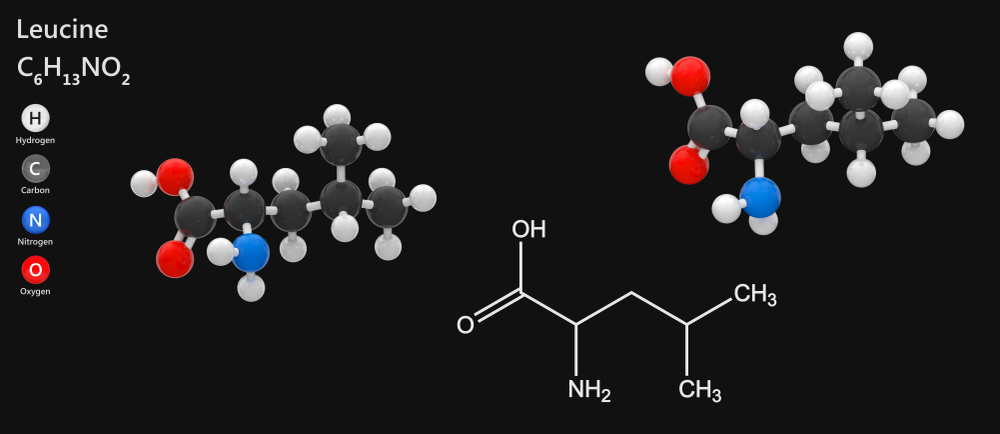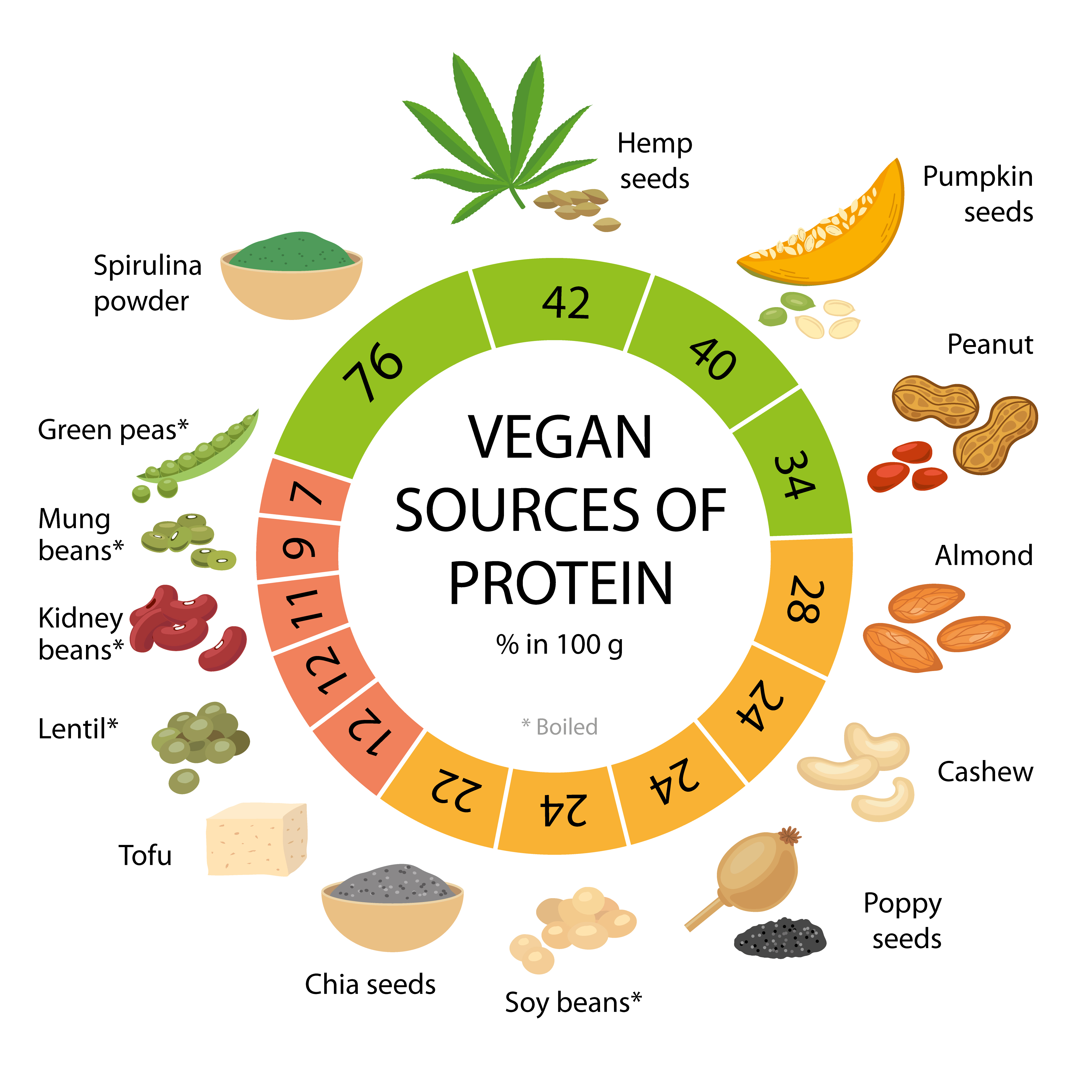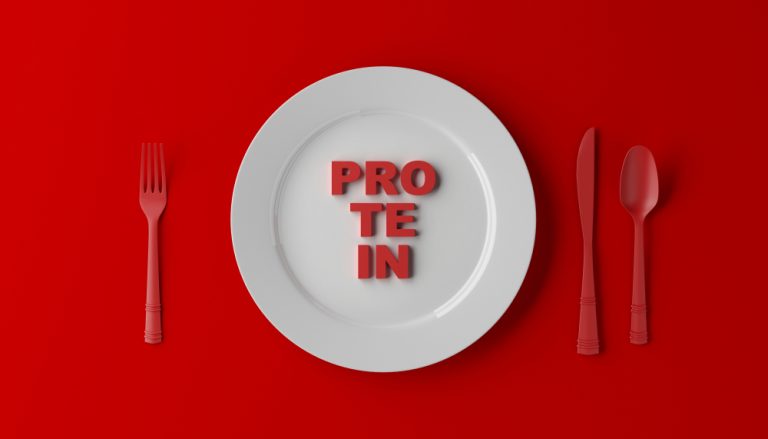Getting enough proteins is key when it comes to building and maintaining muscle mass. And when it comes to proteins, we often talk about how much and when they should be consumed to maximise muscle growth. But there is actually more to the picture: the food source of proteins we choose also has an impact on the overall quality of the proteins, and can make a difference on your muscle mass growth results.
Why proteins?
Proteins are one of the three macronutrients found in food (along with carbohydrates and fats). They are made of multiple building blocks called amino acids, some of which our body cannot produce and need to receive from food. These essential amino acids (histidine, isoleucine, leucine, lysine, methionine, phenylalanine, threonine, tryptophan, and valine) are used to define the quality of a protein source: a high-quality protein source will contain all nine essential amino acids.
When we eat or drink some proteins after exercising, amino acids are sent to the muscles where they are used to help recovery and build new muscle cells: that is when muscle growth happens. In particular, the amino acid leucine is not only one of the building blocks for new muscle cells, it also directly activates the process of muscle growth.

Are all protein sources equal?
The short answer is no! Proteins can be found in both animal foods like dairy, eggs, fish and meat, and plant-based foods like beans, legumes and wholegrains. However, animal proteins have important differences with plant-based proteins, both in terms of quantity and quality. Overall, animal foods contain more proteins than plant-based foods, and more importantly contain a higher amounts of leucine, that essential amino acid which triggers muscle growth. They also contain all nine essential amino acids, as opposed to plant-based foods that are often lacking one or two essential amino acids (most of the time lysine or methionine). Finally, when we digest food it is easier for our bodies to extract amino acids from animal proteins compared to plant-based proteins. Overall, this suggests that it is easier to get sufficient amounts of quality proteins by consuming animal foods. However, is this also true for muscle growth? And within animal foods, are all proteins similarly efficient to build muscle mass?
Proteins and muscle growth: what the science says
Many researchers in nutrition and sport sciences have been interested in comparing the effect of plant-based vs. animal proteins on muscle growth for the past ten years, and even more so since the skyrocketing popularity of vegan and vegetarian diets.
When comparing milk and soy proteins consumed after exercise, researchers in Canada found that the proteins in milk were more efficient in stimulating muscle growth (https://www.ncbi.nlm.nih.gov/pubmed/17413102 and https://www.ncbi.nlm.nih.gov/pubmed/17684208). Similarly, consuming beef proteins after exercise was shown to promote a greater muscle growth in comparison to soy proteins, whereas beef seems to have a similar effect to milk when it comes to building muscle mass (https://www.ncbi.nlm.nih.gov/pubmed/26354539).
Within milk, there are two main types of proteins: casein and whey. Research suggests that whey protein is more efficient than casein to stimulate muscle growth. Thus, if using protein supplements, whey protein isolates shakes can be the best option to choose after exercising to build muscle mass.
Boosting the efficacy of plant-based proteins for muscle growth
Overall, research suggests that animal proteins are more efficient to build muscle mass compared with plant-based proteins. But does it mean being on a strictly plant-based diet makes it impossible to build muscle? Luckily, no! There are some ways to boost the efficacy of plant-based proteins and maximise your muscle gains:
- Combining plant-based proteins to a source of leucine.
In a study conducted in rats, researchers showed that wheat proteins supplemented in leucine had a similar effect on muscle growth as whey protein (https://www.ncbi.nlm.nih.gov/pubmed/22818257).
- Combining different plant-based proteins together to maximise essential amino acids.
As most plant-based proteins lack one or two essential amino acids, it is easy to pair them up in order to get all nine essential amino acids. For example, combining lentils and quinoa, wheat and peas or lentils and maize.

- Combining your proteins with a source of fat.
Emerging research suggests that combining proteins with a source of fat may improve muscle growth compared to proteins only. For plant-based athletes, this could be easily done by adding a lump of peanut butter to a protein shake!
- The bottom line
Sufficient quality proteins are essential to gain muscle mass, and research shows that not all protein sources are the same when it comes to muscle growth. The essential amino acid called leucine triggers the process of muscle growth, and it is more easily accessible to the body when it comes from animal foods, as opposed to plant-based proteins. However, it is still possible to build muscle mass and thrive as a plant-based diet! According to the most recent research, athletes following a plant-based diet may benefit from supplementing their vegan proteins with leucine, combining different plant foods and to add a source of fat to their post-exercise meals to maximise their muscle growth.






